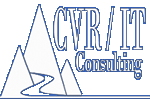Training Services → For Management
Implementing Practical Project Portfolio Management
|
Course Description
This course is intended for those who wish to improve and formalize PfM in their organization. After reviewing the fundamentals of effective PfM, participants perform an assessment of their organization's current PfM practice, design a more effective PfM practice, and determine the steps needed to reach a higher level of PfM maturity. The ratio of exercise to lecture is very high with the result that participants actually begin the work of redesigning PfM in their environment. Implementing Practical Project Portfolio Management is exceptionally effective when conducted onsite with your key PfM players participating. Learning Objectives include:
- The promise of PfM
- Primary business processes of PfM
- Steps for improving the PfM process
- Role of the Executive Team in PfM
- How to define a Portfolio: Aligning projects to strategy
- The portfolio as a Business Value Delivery Engine
- Project prioritization: How to choose the right projects at the right time
- Project categories
- Project authorization and funding
- Capacity planning; managing limiting resources
- The Master Projects Schedule
- Managing portfolio risk exposure
- Managing change in PfM
- Reporting on portfolio results
- Gaining organizational adoption of a new PfM process
Who should attend
This course is of great value to Portfolio Managers; anyone who uses projects to execute Business Strategy; anyone who is planning on implementing portfolio management software; CEO, CFO, CIO, other Senior Executives; PMO Directors; Functional Managers and Executives with project responsibility.
Prerequisites
This course does not require any prior project training or special knowledge of project management concepts, although a basic understanding is helpful for some of the exercises.
Course Outline
Section 1: Introduction to Project Portfolio Management
- What is PfM?
- Fundamental PfM concepts
- PfM roles and responsibilities
- Promise of PfM
- Assessment of Current Organizational PfM Practice
Section 2: PfM Implementation Overview
- PfM implementation Deliverables
- The PfM Project Charter
- Stakeholder analysis
- Portfolio Definition
- Organizational Impact of PfM
- PfM Implementation as Program
- Prerequisites of PfM
Section 3: PfM Process Overview
- PfM overview
- Roles in PfM
- PfM Governance Structures
- PfM process groups
Section 4: Portfolio Definition
- Portfolio Definition Process
- Portfolio Overview
- Stakeholders & Governance
- Portfolio Processes
- Authorization
Section 5: Project Identification and Categorization
- Project Identification
- Project Categorization
- Project Register
Section 6: Project Evaluation
- Participants
- Evaluation Process
- Selection Criteria
- Tools and Techniques
- Evaluation Output
Section 7: Estimation
- Importance of estimates
- Estimation techniques
- Importance of estimates in PfM
- Working with highly uncertain estimates
Section 8: Project Selection
- Guidelines
- Participants
- Project Selection Logic
- Project Selection Tools
Section 9: Project Prioritization and Authorization
- The Prioritization Process
- Participants
- Portfolio Breakdown Structure
- Master Project Schedule
- Project Prioritization Logic
- Authorization and Budgeting
Section 10: Periodic Reviews and Reporting
- Defining the Reporting Process
- Metrics
- Gate Reviews
- Stakeholder Communication
Section 11: Managing Portfolio Risk
- Planning for risk management
- Common sources of risk in PfM
- Analyzing risks to portfolio and PfM process
- Risk response planning
- Managing risk exposure in PfM
Section 12: PfM Change Management
- Categories of Change
- PfM process
- Portfolio definition
- Portfolio components
Section 13: Managing PfM Implementation as a Program
- Program Charter
- PfM Process Implementation
- PfM Milestones
Section 14: Organizational Adoption
- Impact of change
- Anticipating organizational requirements
- Assessing Organizational Readiness
- The Organizational Adoption Plan
- Implementing and Maintaining the change
This course includes over 30 hands-on exercises that reinforce learning and retention.
Learning Approach
- A highly-experienced instructor will use interactive lecture format, numerous hands-on exercises, team activities, group discussions and other techniques to drive home the essential points of this material
- We will build on your prior experience in this topic, while providing you with a structure and vocabulary to use in all of your future projects.
- If you have modest project portfolio management knowledge, you will find that the clarity of the material and direct presentation style of the instructor will make the subject matter easy to understand.
- You will receive a Participant Guide which will help you follow the material, take notes, and retain what you learned so that you can apply it on your job.
Why should I take this course?
- Implementing Practical Project Portfolio Management presents a practical approach to implementing PfM in a way that can drive your Business Strategy forward. Take home a whole new set of tools and techniques.
- Participants perform an assessment of their own organization's PfM maturity level. This assessment can be used as a baseline against which to measure future improvements.
- Take this course and learn what you can do to ensure that you choose the right projects at the right time, give them what they need to succeed, and reap the benefits of the Business Value that they can deliver.
Licensing
This course is available under license to qualified Training Providers. Courseware materials include:
- Instructor slides
- Instructor manual with timing guide
- Printed participant guide
- Train the Trainer instruction
- Written for classroom or virtual delivery
For more information, see
Courseware-On-Demand or Contact Us
Every course and workshop in our Project Training program is fully customizable. We offer virtual delivery of the training program you need. Call us: +1.919.495.7371.
All of our courses are fully compliant with the latest release of each relevant standards document such as the PMBOK® Guide, Standard for Portfolio Management, BABOK® Guide, and others.
|
